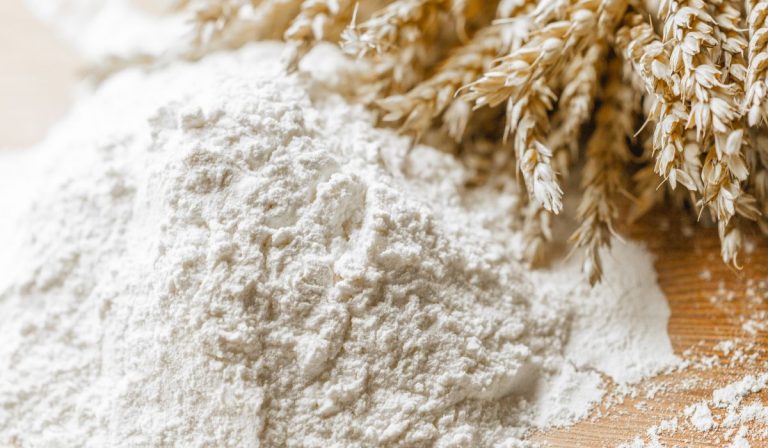Foods To Avoid While Taking Metformin (Makes You Feel Awful)

Metformin can drastically improve the quality of life for people with diabetes by efficiently regulating blood sugar. It also has great capabilities for reducing the severity of Polycystic Ovary Syndrome (PCOS).
While it has many benefits, there are side effects to the medication. Many people taking Metformin find that they feel awful while on Metformin. Most of us are aware of the potential for drug interactions, but the food we eat regularly also contributes to how medication functions and how it affects us.
If you are feeling awful from taking Metformin, I have some recommendations on how to foster a Metformin-friendly diet to reduce side effects. There are some foods you can eat to help ease the discomfort and malaise often experienced by taking the medication.
Metformin Makes Me Feel Awful
The side effects of metformin are one of the biggest complaints I hear from my patients. Understandably, people are looking for answers.
People taking Metformin will experience gas, diarrhea, nausea, vomiting, and/or bloating while getting started on the medication. Usually, these symptoms resolve in two weeks or so, but sometimes these awful feelings will last longer.

It helps to use food, and sometimes supplemental vitamin B-12 as part of your treatment, to make sure you are setting your body up for success to reduce the unpleasant side effects of the drug.
Some people who take Metformin may experience a vitamin B-12 deficiency. This leads to frequent feelings of fatigue, breathlessness, and lightheadedness. These side effects are easily treated by incorporating more B12 into your diet and/or taking a daily vitamin B12 supplement.
Vitamin B12 is available as a daily oral tablet, a nasal spray, or a monthly injection. Most people opt for the daily tablet.
Metformin can be hard on the digestive tract, so it makes sense that certain types of foods can intensify the irritation on your digestive system, or cause more problematic side effects. It helps to incorporate better foods, and take other actions to prevent awful feelings from occurring.
People with Type 2 Diabetes or PCOS desperately need the relief from side effects of Metformin, but that doesn’t mean you have to experience other unpleasantries in order to find relief.
If you are a person who is allergic or truly intolerant of Metformin, your medical provider may recommend an alternative to Metformin for treatment.
Take charge of your health and follow these guidelines to reduce the awful feelings associated with taking Metformin.
Problem Foods to Avoid While Taking Metformin
Many of the foods that cause problems or increase the severity of Metformin’s side effects are not very healthful to begin with.
Metformin works to help support the proper processing of insulin, but you need to incorporate a diet to help reduce side effects.
Excluding problem foods from your diet will greatly improve your quality of life while increasing the success of Metformin in reducing blood sugar and symptoms of PCOS.
Trans and Saturated Fats to Avoid
Healthful fats like avocados, walnuts, and fish are very good for you. However, saturated fats (red meat, pork, butter) and trans fats (cakes, doughnuts, margarine) are not as compatible with Metformin.
Some fats are important for the brain, skin, and hair but excess processed fats, grease, and saturated or trans-fats are poor choices for your overall health, and can increase awful feelings associated with taking Metformin.

Sodium and Metformin
Too much sodium can also make the side effects of Metformin more unpleasant. Many processed foods like chips, frozen pizzas, frozen dinners, and canned vegetables are packed with sodium. Without proper diligence, you can be racking up your sodium intake without awareness of it happening.
Strive to stay below the RDA of 2300 mg of sodium daily to keep your body in top shape, and to reduce issues with taking Metformin.
Drinking Alcohol
Some alcohols are high in sugar, which can affect blood sugar. Everyone is different, but sometimes the sugar combined with the alcohol will raise blood sugar right away, but the alcohol consumption can cause your blood sugar to drop too low.
Straight alcohol intake (brandy, whiskey, gin, vodka) does not have sugar, but it can affect your blood glucose.

Alcohol interacts with Metformin, which can prevent the liver from storing and releasing glucose. This increases the risk of low blood sugar.
Metformin also increases the amount of lactate in your system, which creates the potential for developing a condition called lactic acidosis. Lactic acidosis can be treated, but if symptoms are ignored, it is potentially fatal.
Lactic acidosis, although rare, is a serious health issue. To avoid it, make sure you limit alcohol consumption when on Metformin, and eat something while you are drinking alcohol.
High-Fiber Foods
The consumption of fiber in moderation is vital to our digestive system and overall health. However, too much fiber can decrease the efficiency of certain medications.
This happens because the fiber absorbs the medication and reduces the concentration of the drug in the bloodstream. This means the Metformin will not work as well as it should because not as much of the medicine can be absorbed.
According to the USDA, the recommended DRI (dietary reference intake) for fiber is as follows:
- Women under the age of 50: 25 to 28 g per day
- Men under the age of 50: 31 to 34 g per day
- Women age 51 and older: 22 g per day
- Men age 51 and older: 28 g per day
- Children ages 1 to 18: 14 to 31 g per day, but varies according to age and sex
In my practice, and based on reported recall of dietary intake, I would estimate that the majority of my clients consume less than 20 g of fiber per day.
According to the NIH (National Institutes of Health), about 95% of the American population (adults and children) do not eat enough fiber, consuming only about 16 g per day.
If you are consuming more than 30 g of fiber per day, your Metformin might not be effectively absorbed, but most people do not eat nearly that much.
Simple and Refined Carbs
People with diabetes should try to avoid simple and refined carbohydrates. These carbohydrates will increase your blood sugar rapidly, and leave you feeling miserable shortly after.
Candy, desserts, and regular soda are commonly consumed simple and refined sugars that should be avoided when taking Metformin. Other simple and refined carbs include pasta, white rice, and white bread.
Try to eat these carbohydrates very rarely, or not at all, while on Metformin. Excess carb intake does not sit well with many and does not help blood sugar levels.

Can I Eat Grapefruit While Taking Metformin? (Drinking Grapefruit Juice)
You may have heard that grapefruit should be avoided while taking Metformin and have wondered why. In general, grapefruit is a healthful fruit with many benefits for the body.
According to an older study by NIH in 2009 done on rats, researchers speculate that grapefruit juice may magnify Metformin accumulation in the liver. From this study, it is thought that Metformin “may exacerbate lactic acidosis in diabetic patients taking metformin concurrently.”
I am frequently asked if grapefruit can be eaten as long as it is not the same time as the Metformin. Some literature indicates that grapefruit can be consumed if it is eaten 4 hours before or after your dose.
Because grapefruit interacts with so many medications, I advise complete avoidance of grapefruit when taking this medication to prevent any grapefruit related health issues from occurring. If you have questions or concerns, consult with your physician or primary provider.
Foods To Avoid When Taking Metformin For PCOS
Metformin is primarily a medication to help treat Type 2 Diabetes. It also has promising effects on the symptoms of Polycystic Ovary Syndrome (PCOS).
The drug works by enhancing the body’s sensitivity to insulin. Enhanced insulin sensitivity in the body decreases the amount of insulin circulating in the body. This in turn helps produce a positive effect on adipose tissue or fat.
Many prescribers will turn to Metformin for those who have PCOS who also have an elevated BMI (Body Mass Index).
Like those taking the medication for Type 2 Diabetes, there are diet changes you can make to help reduce the level of side effects you experience.
Sugary Drinks
PCOS often stems from insulin resistance and excessive amounts of sugar consumption are not good for those with the condition. Energy drinks, flavored coffees, regular sodas, and artificial juices are a few of the many sugary drinks capable of causing unpleasant side effects for people with PCOS who are taking Metformin.
Avoiding these types of sugary drinks can help Metformin work more effectively at treating symptoms of PCOS.

Refined Grains
Whole grains are excellent sources of nutrients and fiber. However, many food items like white bread, white rice, and white pasta have been stripped of beneficial nutrients and fiber.
The end result is that refined grains are significantly more likely to raise blood sugar and make PCOS patients’ insulin resistance even worse.
Like many other problem foods you’ll find on this list, they are not recommended with use of Metformin, and they may also contribute to the reasons you are taking the medication in the first place.
Foods With Added Sugar
It’s easy to see why foods with added sugar are discouraged for women with PCOS or people with type 2 to consume regularly. The excess sugar does not favor preexisting insulin resistance and the effectiveness of the Metformin medication.
Foods with an excess of added sugar often make the symptoms of PCOS worse and should be avoided.
Fried Foods
Fried foods can be upsetting to the stomach of a person who does not take medication, so eating fried foods while taking Metformin can be an uncomfortable experience.
Eating fried foods can be one of the triggers that cause digestive upset. Eliminating them may help give your digestive system a break while taking Metformin.
Reducing the number of fried foods you eat will help you lose weight, which has been shown to help reduce the severity of PCOS symptoms .

Reducing Metformin Side Effects
Side effects from medications are never fun. Reducing them takes some diligence and routine but overall you will feel much better and get relief from symptoms caused by Type 2 Diabetes or PCOS.
Metformin’s side effects most commonly manifest in the form of gastrointestinal upset as diarrhea and nausea. Many patients report that they experience the side effects much more intensely when they take the medication on an empty stomach.
Taking Metformin with food is one of the best ways to reduce side effects and feel less awful from the medication. Dietary changes may help reduce these side effects as well. In addition to less intense side effects, these dietary changes will also help to improve your overall health.
For Type 2 Diabetes and PCOS, these dietary changes can also help reduce the severity of the symptoms you experience from your condition.
In many cases, medication must also be paired with lifestyle changes to experience lasting relief from symptoms and health risks. I recommend patients adopt some of these diet changes to their lifestyle to make their day-to-day more enjoyable and improve their overall health.
Incorporating daily exercise and regularly checking blood sugar levels will also help your doctor determine the best course of action for treating your condition.
When Is The Best Time To Take Metformin?
Metformin is best tolerated when taken with food, so the best time to take it is with meals. Metformin is prescribed 1-2 times daily, sometimes 3.
Taking Metformin with meals or food will help reduce the negative gastrointestinal symptoms that many people experience from the drug.
Your body may take some time to get used to Metformin, so starting your dose at 500 mg once daily (with a meal) is usually recommended. Take 500 mg daily and increase your dose by one 500 mg tablet every week, as tolerated, to goal.

Medications To Avoid While Taking Metformin
In addition to problem foods, it is important to know what types of medication interact when taking Metformin. Drug reactions range in severity
Make sure to talk to your physician about all the medications you are taking to make sure there is no cause for concern when it comes to negative interactions between medications.
Some of the medication’s that may interact with Metformin include the following:
- Anticonvulsants
- Oral Contraceptives
- Diuretics
- Corticosteroids
- Antipsychotics
- Blood Pressure Medication
Foods That Help When Taking Metformin
Now that you know what foods to avoid when taking Metformin, it helps to know which ones that help. This way you have a healthful set of alternatives to the food you are removing from your diet. These foods will help with side effects while taking Metformin and help control blood glucose levels.
Complex Carbs
Complex carbohydrates have more fiber which makes them take a bit longer for the body to metabolize. This helps because the slowed digestion releases glucose much slower than refined or simple carbohydrates.
Complex carbohydrates are present in a wide range of food including whole foods like fruits, vegetables, and whole grains. Whole grains like whole-grain bread and brown rice are fantastic alternatives to the refined carbs you find in white bread, white rice, and pasta.
Non-Starchy Vegetables
Non-starchy vegetables help to slow the metabolism of carbs. This means a slower release of glucose into your blood. Many non-starchy vegetables are easily accessible like broccoli, kale, spinach, and cauliflower.

Healthy Fats
Fish, olive oil, avocado, and nuts are all excellent sources of healthy fats. Our bodies need a certain amount of “good” fat to maintain our overall health.
Consider swapping some unhealthy fats like beef or pork with fish, and swap vegetable oil for olive oil for easy alternatives.
Lean Proteins
Lean proteins are incredibly nutritious and very healthful. These include fish, turkey, white meat chicken, and tofu. Choosing these over higher fat proteins like beef and pork will help improve your overall health and decrease the side effects of taking Metformin.

Moderate Fiber Intake
As I discussed earlier, the excess fiber is not good for Metformin users. The fiber tends to absorb the drug and reduce the concentration in the bloodstream which makes it not work as well as it should. Keep your fiber in check to reduce symptoms of type 2 diabetes and PCOS.
To Sum It Up
Metformin can cause gastrointestinal upset in people, including diarrhea, vomiting, bloating, and gas. People with Type 2 Diabetes and PCOS can reduce the severity of side effects by taking the medication with a meal and not on an empty stomach.
Incorporating healthy fats and foods like whole grains, lean protein, and complex carbs can help reduce side effects.
Avoiding foods like fried foods, excess sugar, and refined carbs can also help improve the way Metformin is metabolized to reduce side effects and keep your blood sugar levels under control. Lastly stay clear of saturated and trans fats.

Thanks for stopping by my Dealing With Diabetes blog! My name is LeeAnna.






